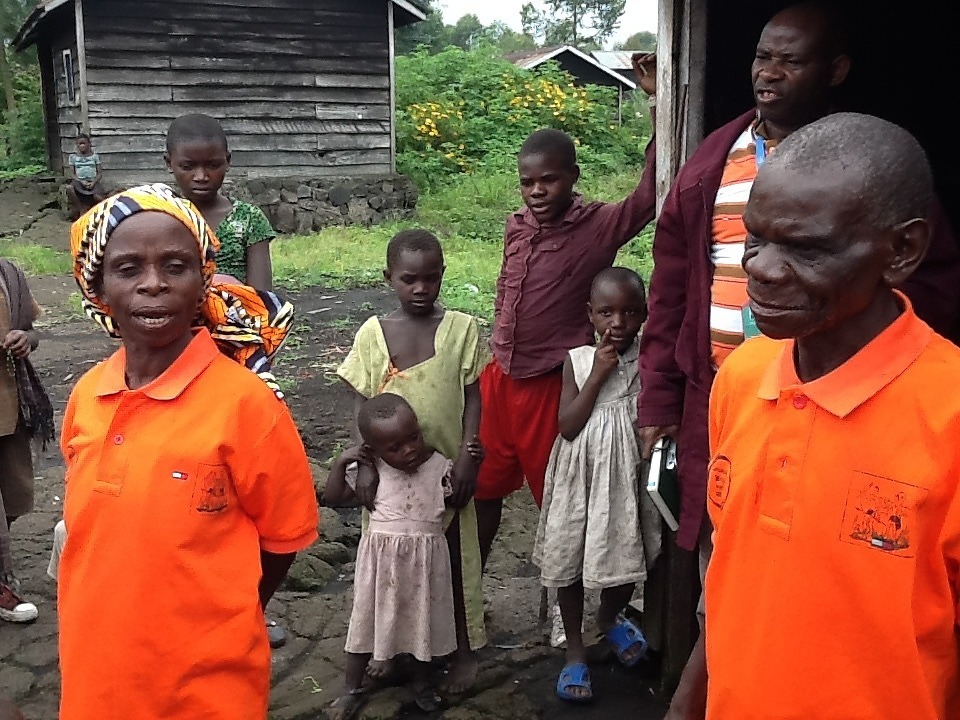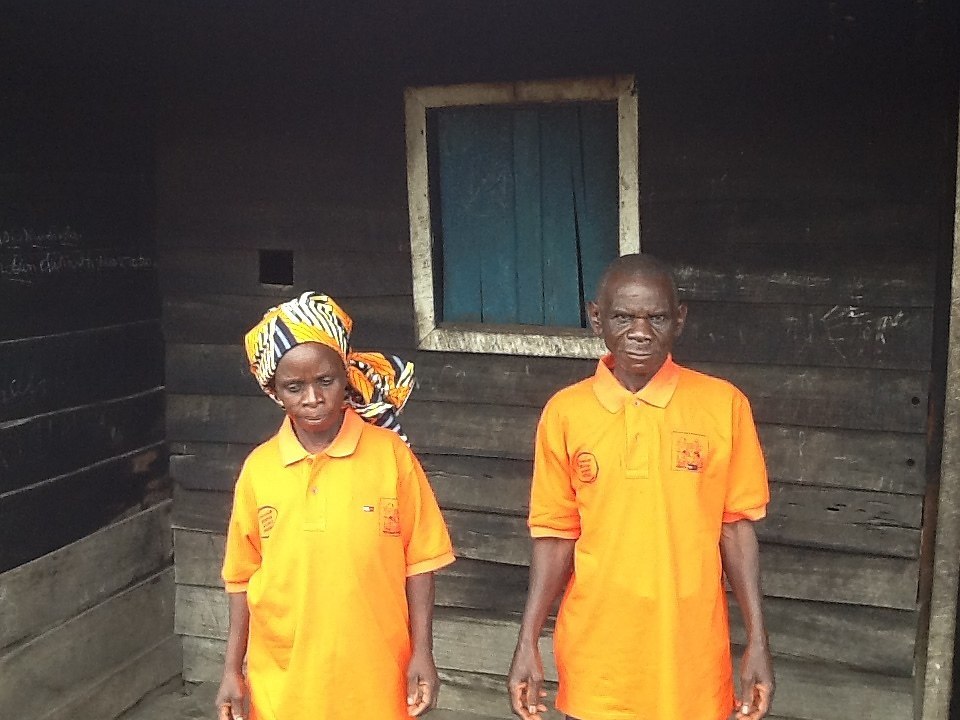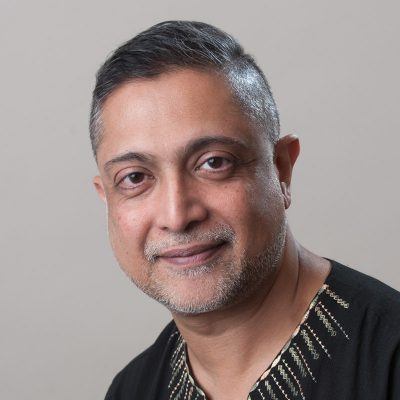To say Masinda Masiano is formidable would be an understatement. She packs a punch, both in personality and speech, even if her frame is slight.
Masinda is a Pygmy from the village of Mujo Mukondo outside Goma in North Kivu province. She doesn’t know how old she is, but I’d guess at least 60. She met us at the village entrance in a bright orange polo shirt emblazoned with the AJWS logo. The back read, “PIDP (Program for the Integration and Development of the Pygmy People, an AJWS grantee) works for the rights of Pygmies.” Masinda is the co-president of her village community and led the official welcome to our small delegation.

PIDP is a movement organization led by and made up of Pygmies in three provinces of the Democratic Republic of Congo. It consists of numerous “base communities,” like the one Masinda heads, at the village level. Each village elects two representatives—a woman and a man—to represent them at the territory level. They, in turn, choose a woman and man to represent them at the provincial level, and those pairs elect the national level representatives that form PIDP’s board. All representatives form its general assembly. I was impressed with both the democratic structure and the gender parity throughout the organization.
“I work with PIDP because they are advocating for our rights as people,” Masinda said. “Previously, if others shared food with us at all, they’d give it to us on leaves. They wouldn’t give us water in a glass. They said we smelled. Even though we have blood in our veins like them, they treated us like animals. Things are better now. Now they share food with us on plates. Even intermarriage is happening.”
I asked her what changed.
“We have self-confidence,” she said, glowing. “If in the past people came to see us, we’d run away into the forest. Now, you come to meet us and we meet with you and invite you into our homes. That’s because [PIDP] has shown us that we have human rights like everyone else.”
For marginalized communities that bear the brunt of social, political, and economic oppression—in many cases for centuries—economic development or even state recognition of their human rights is not enough. Their self-worth, in the context of deeply-embedded racism and denial of their humanity, is often minimal to nothing.
PIDP knows this well. A core part of its work is making Pygmies aware of their human rights and unique culture—indeed, their very being as humans and as the original inhabitants of the Congo. Equally, it is educating other communities and the government about the indigenous population and their rights as humans and equal citizens.
PIDP’s other purpose is fighting for the Pygmies’ natural resource rights, particularly land and territorial rights. Like indigenous people elsewhere, Pygmies are intricately tied to their land, both economically and culturally—a fact both Belgian colonists and the post-colonial Congolese state have been late or loath to recognize. One of the ways PIDP does this work is through its participation in the national land law reform process. It also secures land for displaced Pygmies like those in Mujo Mukondo.
Masinda told us her family was expelled from their home in Virunga, a national park.
“We depended on it and took care of it,” she said. “We want our rights back. If we don’t have land, we can’t survive. If we don’t farm and produce food, we don’t eat or pay fees for children’s schooling.”
Her husband, Muhima Sebazungu, a sprightly old man wearing a jacket over his AJWS polo shirt, chimed in.
“Before, we used to hunt and gather,” he said. “Things are a lot better now, but we still face harassment from the authorities. So, we also monitor violations of our rights, like arbitrary arrests and detentions.”

I thought he’d worn the jacket because we were visiting, but it turned out that Muhima was meeting the provincial governor after meeting us. He is co-president of PIDP at the provincial level in North Kivu and had been invited to brief the governor on Pygmy issues.
I asked Masinda what her husband should tell the governor.
“We want our land back,” she said. “I want him to tell the governor that. And that we need clean water, better schools and access to credit. And we need Pygmy representation in provincial and national politics.”
I’ve no doubt that is exactly what he’ll tell the governor.
AJWS’s work in countries and communities changes over time, responding to the evolving needs of partner organizations and the people they serve. To learn where AJWS is supporting activists and social justice movements today, please see Where We Work.

